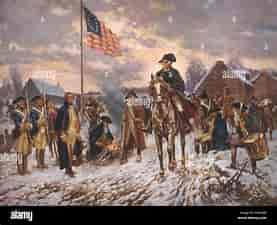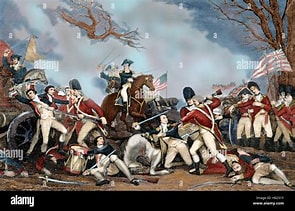Introduction
Imagine a world where a group of brave and determined individuals decided to challenge the status quo. fighting against one of the most powerful empires of their time to create a new nation built on the principles of liberty, democracy, and self-governance. This is the story of the American Revolution, a pivotal event in American and world history that shaped the course of modern democracy. In this article, we will delve into the causes, key events, and lasting impacts of this revolutionary period.
What Led to the American Revolution?
Colonial Grievances
The American Revolution was not a spontaneous event but rather the culmination of years of growing tensions between the British government and its American colonies. The British imposed various taxes on the colonies, such as the Stamp Act, Townshend Acts, and Tea Act, without granting them representation in Parliament. This led to the famous slogan “No taxation without representation.”

Influence of the Enlightenment
The ideas of the Enlightenment, which emphasized reason, individual rights, and the social contract, played a significant role in shaping the colonists’ views on governance and liberty. Thinkers like John Locke, Thomas Paine, and Jean-Jacques Rousseau inspired the colonists to question the authority of the British monarchy and seek self-governance.
Key Events of the American Revolution
The Boston Massacre and Boston Tea Party
- Boston Massacre (1770): Tensions between British soldiers and American colonists in Boston came to a head, resulting in the deaths of five colonists. This event was widely publicized and helped galvanize opposition to British rule.
- Boston Tea Party (1773): Colonists, disguised as Native Americans, boarded British ships and dumped tea into the harbor to protest the Tea Act. This act of defiance led to the closure of the Boston port by the British, further escalating tensions.
The Declaration of Independence
In 1776, the Continental Congress drafted and adopted the Declaration of Independence, written primarily by Thomas Jefferson. This document declared the 13 colonies to be independent and free from British rule, establishing the principles of equality, liberty, and the pursuit of happiness.
Major Battles and Turning Points
- Battle of Saratoga (1777): This decisive victory over the British convinced France to ally with the Americans, providing significant financial and military support.
- Battle of Yorktown (1781): The final major battle of the war, where American and French forces trapped and forced the surrender of the British army under General Charles Cornwallis, effectively ending the war.

The Role of Key Figures
George Washington
George Washington, the commander-in-chief of the Continental Army, played a crucial role in the American Revolution. His leadership and strategic decisions were instrumental in the war’s outcome. He is often referred to as the “Father of the Country” for his role in shaping America’s early years.
Thomas Jefferson
Thomas Jefferson, the primary author of the Declaration of Independence, was a key figure in articulating the philosophical underpinnings of the Revolution. His document not only declared independence but also laid out the foundational principles of American democracy.
Benjamin Franklin
Benjamin Franklin, with his diplomatic skills and international reputation, secured French support for the American cause. His negotiations were vital in securing the financial and military aid that helped turn the tide of the war.
The Impact on American Society
Creation of a New Nation
The American Revolution resulted in the creation of a new nation based on democratic principles. The United States of America was founded on the idea that power resides with the people, and it established a system of government that included checks and balances to prevent any one branch from becoming too powerful.
Social and Economic Changes
- End of Feudalism: The Revolution marked the end of feudalistic structures in America, promoting a more egalitarian society.
- Economic Growth: The new nation experienced rapid economic growth, driven by its newfound independence and the ability to set its own trade policies.
International Impact
Inspiration to Other Revolutions
The American Revolution served as an inspiration to other revolutionary movements around the world. The French Revolution, for example, was heavily influenced by the American ideals of liberty, equality, and fraternity.
Shift in Global Power Dynamics
The Revolution marked a significant shift in global power dynamics, as it challenged the dominance of European empires and established the United States as a new world power.
Challenges and Aftermath
Rebuilding and Governance
After the war, the newly independent nation faced significant challenges in rebuilding and establishing a functional government. The Articles of Confederation, which governed the country from 1781 to 1789, proved inadequate, leading to the drafting and adoption of the United States Constitution in 1787.
Slavery and Civil Rights
The Revolution also highlighted the contradiction between the ideals of liberty and the reality of slavery. The issue of slavery would continue to plague the nation, eventually leading to the Civil War in the 19th century.
Legacy of the American Revolution
Modern Democracy
The American Revolution laid the groundwork for modern democracy. Its emphasis on individual rights, representative government, and the rule of law has influenced democratic movements worldwide.

American Identity
The Revolution helped shape American identity, fostering a sense of national pride and unity. It established the United States as a beacon of freedom and democracy, a role it continues to play today.
Conclusion
The American Revolution was more than just a war for independence; it was a fight for the very principles that underpin modern democracy. From the Boston Tea Party to the signing of the Declaration of Independence, this period in history was marked by courage, determination, and a vision for a better future. As we look back, it is clear that the American Revolution’s impact extends far beyond the borders of the United States, influencing global politics, social structures, and the ongoing quest for liberty and self-governance.
Meta Description
Discover the pivotal events, key figures, and lasting impacts of the American Revolution, a fight for independence that shaped modern democracy and inspired global change.
FAQs
What were the main causes of the American Revolution?
The main causes included colonial grievances such as taxation without representation, the influence of Enlightenment ideas, and specific events like the Boston Massacre and Boston Tea Party that escalated tensions between the colonies and Britain.
Who were the key figures in the American Revolution?
Key figures included George Washington, who led the Continental Army; Thomas Jefferson, who authored the Declaration of Independence; and Benjamin Franklin, who secured French support for the American cause.
What was the significance of the Declaration of Independence?
The Declaration of Independence declared the 13 colonies independent from British rule and established the principles of equality, liberty, and the pursuit of happiness, which have become foundational to American democracy.
How did the American Revolution impact American society?
The Revolution led to the creation of a new nation based on democratic principles, ended feudalistic structures, and promoted rapid economic growth. However, it also highlighted the contradiction between the ideals of liberty and the reality of slavery.
What was the international impact of the American Revolution?
The Revolution inspired other revolutionary movements worldwide, such as the French Revolution, and marked a significant shift in global power dynamics, establishing the United States as a new world power.


